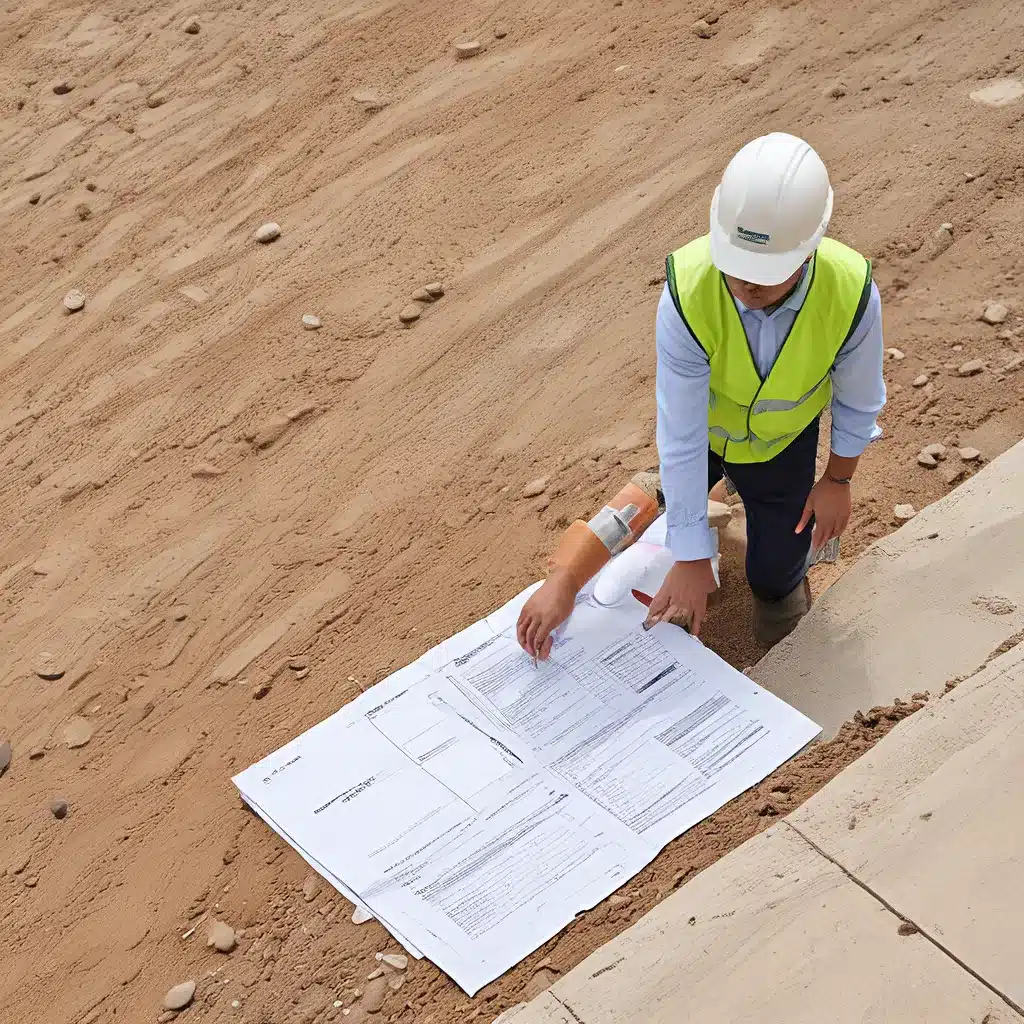
Navigating the Complexities of Project Management in General Contracting
As a seasoned veteran in the world of construction project management, I’ve seen it all – from nail-biting deadlines to budget-busting surprises. It’s a dynamic field that demands not only technical expertise but also exceptional leadership and communication skills. And let me tell you, navigating these complex waters is no easy feat.
But fear not, my fellow construction enthusiasts! Today, I’m here to share some invaluable insights that will help you steer your projects towards success, even in the face of the most daunting challenges. So, buckle up and get ready to dive into the intricate world of project management in general contracting.
The Foundation of Success: Comprehensive Planning
You know the old saying, “Fail to plan, plan to fail”? Well, in the construction industry, that couldn’t be truer. A robust project plan is the foundation upon which a successful construction project is built. It’s essential to invest ample time in defining your project goals, establishing a detailed schedule, and outlining a realistic budget.
Failure to do so can lead to costly delays, disputes with stakeholders, and a whole lot of headaches. I remember one project where we didn’t spend enough time upfront planning the logistics. Long story short, we ended up scrambling to find materials, juggling subcontractors, and losing precious time (not to mention a few grey hairs). Comprehensive planning is truly non-negotiable for any construction project, no matter the size or complexity.
Navigating the Minefield of Risk Management
Every construction project comes with its fair share of risks – from adverse weather conditions and supply chain disruptions to unexpected site conditions and equipment failures. It’s like a minefield out there, and you’ve got to be ready to navigate it with precision.
That’s why effective risk management is crucial. Identifying potential risks early on and developing strategies to mitigate them can save you a world of trouble down the line. I’ll never forget the time we had a major delay because of a rare snowstorm that hit the site. If we hadn’t had a contingency plan in place, it would have been a total disaster. A well-thought-out risk management plan can truly be a lifesaver in this industry.
The Art of Effective Communication
Now, let’s talk about the unsung hero of project management: communication. The construction industry involves a wide range of stakeholders, from architects and engineers to contractors and subcontractors. And let me tell you, if you can’t get everyone on the same page, it’s like herding cats in a tornado.
Clear and open communication is essential to ensure everyone is aligned with project objectives. Miscommunication can lead to costly rework, delays, and disputes that can make even the calmest project manager want to pull their hair out. I remember one project where a simple misunderstanding between the electrician and the plumber resulted in a week’s worth of rework. Ouch.
Effective communication is the glue that holds a construction project together. It’s not enough to just pass along information – you’ve got to be a master storyteller, able to paint a vivid picture of the project’s progress and keep everyone engaged.
Embracing the Power of Technology
Ah, technology – the construction industry’s secret weapon. In today’s fast-paced, competitive landscape, embracing construction management software and tools can significantly enhance project efficiency. These tools can help with scheduling, budgeting, and collaboration among team members, making your life as a project manager a whole lot easier.
I remember when we first started using a project management app on one of our projects. It was like a lightbulb moment! Suddenly, we had real-time updates on progress, automated notifications for upcoming deadlines, and seamless communication between all the stakeholders. It was a game-changer, I tell you.
Ignoring technology can put you at a serious disadvantage in today’s construction industry. So, be sure to stay up-to-date with the latest tools and platforms – they might just be the secret to your project’s success.
Navigating the Regulatory Maze
If you thought project planning and risk management were challenging, just wait until you dive into the world of environmental and regulatory compliance. Construction projects must adhere to a complex web of building codes, zoning regulations, and environmental guidelines. And let me tell you, the consequences of non-compliance can be downright scary.
I remember one project where we failed to properly dispose of hazardous materials, and it ended up costing us a fortune in fines and legal fees. Not to mention the reputational damage and the sleepless nights trying to figure out how to mitigate the situation. Staying informed and having a dedicated compliance strategy is essential to keeping your projects on track and your clients happy.
Potential Pitfalls to Avoid
Now, I know I’ve thrown a lot of information your way, but before I let you go, I want to highlight a few potential pitfalls that you’ll want to steer clear of:
-
Underestimating the Project Scope: It’s easy to get carried away with the excitement of a new project, but resist the temptation to bite off more than you can chew. Carefully assess the project’s scale and complexity, and make sure your team is equipped to handle it.
-
Neglecting Stakeholder Engagement: Construction projects involve a diverse group of stakeholders, and ignoring their needs and concerns can lead to major headaches down the road. Make sure to keep everyone informed and address their feedback promptly.
-
Failing to Adapt to Changes: The construction industry is notorious for its constant flux. Be prepared to pivot quickly and adjust your plans as needed, whether it’s a change in regulations, a supplier going out of business, or a global pandemic (you know, just throwing that last one out there).
-
Cutting Corners on Quality: It might be tempting to take shortcuts to save time or money, but trust me, it’s not worth it. Maintaining the highest quality standards will pay dividends in the long run, both in terms of client satisfaction and your company’s reputation.
Bringing it all Together
Well, there you have it, my friends – a comprehensive guide to navigating the complexities of project management in general contracting. From meticulous planning to embracing the power of technology, it’s a multi-faceted journey that requires a delicate balance of skills and strategies.
But remember, you’re not alone in this. The team at Reading General Contractor is here to support you every step of the way. We’ve been through the highs and lows of construction project management, and we’re ready to share our expertise to help you achieve your goals.
So, what are you waiting for? Grab your hard hat, sharpen your pencils, and let’s dive into the exciting world of construction project management. Together, we’ll navigate these complexities and deliver exceptional results that will make your clients (and your bank account) smile.
Related posts:
No related posts.




